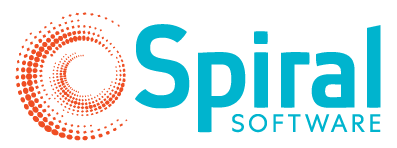
CAPTIVATE: SLOWING THE PROGRESSION OF CHRONIC KIDNEY
DISEASE WITH MULTIPLE TREATMENTS

THE CAPTIVATE TRIAL
Chronic Kidney Disease (CKD) affects over 800 million people globally and is projected to be the 5th most common cause of death by 2040. CKD progresses to kidney failure, increases the risk of early death, and heart disease, and leads to a poorer quality of life.
Current treatments do not entirely remove the risk of kidney failure in people with CKD. To improve the outcomes of people with CKD, it is crucial to find the best treatments that can slow CKD progression. The ‘Chronic Kidney Disease Adaptive Platform Trial Investigating Various Agents for Therapeutic Effect’ (CAPTIVATE) research program aims to build an adaptive trial for testing multiple individual agents and untested combinations to slow the progression of kidney disease.
INSIGHT
The trial is 'eternal', which means that participants will continue to be recruited for many years until the trial is finally wound up. It is also 'adaptive', providing the flexibility to add new treatments, or remove those that are not working.
INSIGHT:
Estimated study start date: May 15th, 2024
Estimated study completion date: June 30th 2028
PUBLISHED
The Global Kidney Patient Trials Network (GKPTN) registry has enrolled 4334 patients with chronic kidney disease since May 2020 across 119 sites in 8 countries.
SOURCE: JAMA NETWORK

BACKGROUND
The global burden of kidney disease, both in the form of acute kidney injury and chronic kidney disease, continues to rise as patients are becoming older, sicker and frailer.
The high prevalence of chronic conditions such as high blood pressure and diabetes, along with improvements in heart disease survival, are resulting in populations that require more complex medical care and are more susceptible to adverse events that impact upon kidney function. It is estimated that the number of people requiring treatment for end-stage renal disease will more than double between 2010 and 2030.
Around 10% of the world’s population is affected by chronic kidney disease, with socio-economically disadvantaged groups bearing a greater burden, and millions die annually for want of affordable treatment.
The number of Australians with kidney failure who received dialysis more than doubled between 2000 and 2021, from 6,400 to 15,200 (9,300 men and 5,900 women).
CAPTIVATE has been designed to test multiple treatments within a common research platform. This design is more efficient and will lead to a shorter time for patients to receive effective treatments. The trial is 'eternal', which means that participants will continue to be recruited for many years until the trial is finally wound up. It is also 'adaptive', providing the flexibility to add new treatments, or remove those that are not working.
TRIAL DESIGN
CAPTIVATE is a multi-centre, phase III, adaptive, platform, randomised controlled trial. It uses a design that can answer many treatment-related questions within a common trial set-up.
This design is more efficient and will lead to a shorter time for patients to receive effective treatments. The trial is ‘eternal’, which means that participants will continue to be recruited for many years until the trial is finally wound up.
It is also ‘adaptive’, providing the flexibility to add new treatments, or remove those that are not working.
Participants can participate in more than one treatment at the same time or at different times. Participants receive each study treatment for 2 years.
For each treatment, participants are followed up at study visits that occur at approximately one month, 3 months, 6 months, 12 months, 18 months and 2 years after starting treatment.A final study visit occurs one month after the end of the 2-year treatment phase.
Information collected at study visits includes blood and urine test results, safety assessments and treatment adherence. Information about the overall health status of each participant is collected every 5 years.
CAPTIVATE will begin by testing whether a mineralocorticoid receptor antagonist slows the progression of CKD when compared to placebo.
1000 participants will be recruited globally from over 50 sites in Australia, New Zealand, India and Italy. Additional treatments, participants, countries and sites will be added as the trial grows.
KEY CONNECTIONS
Project Manager - Enmoore Lin, The George Institute for Global Health
Trial Lead: Sradha Kotwal, Head of the Renal and Metabolic Division at The George Institute for Global Health.

“I find my day-to-day work with Spiral so purposeful and interesting - I feel really engaged with what we’re trying to achieve.””
Spiral’s contribution
Our Spiral Project Lead for the CAPTIVATE Trial is Mel Booth
From managing sprints to building wireframes, working with developers, to liaising with the client, Mel is able to draw heavily upon her project management experience to get her projects out the door. She enjoys being immersed in the medical industry and the technical challenges that come with it.



